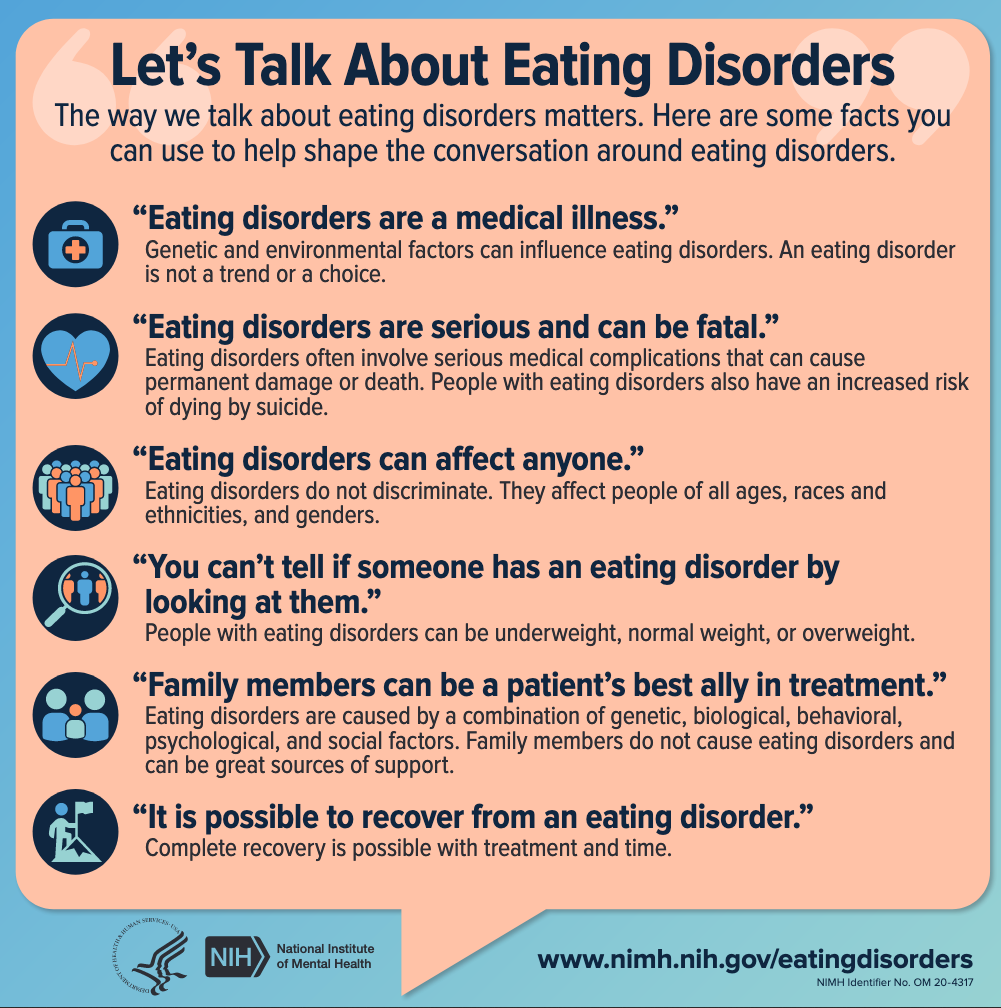 The way we talk about eating disorders matters. Here are some facts you can use to help shape the conversation around eating disorders.
The way we talk about eating disorders matters. Here are some facts you can use to help shape the conversation around eating disorders.
“Eating disorders are a medical illness.”
Genetic and environmental factors can influence eating disorders. An eating disorder is not a trend or a choice.
“Eating disorders are serious and can be fatal.”
Eating disorders often involve serious medical complications that can cause permanent damage or death. People with eating disorders also have an increased risk of dying by suicide.
“Eating disorders can affect anyone.”
Eating disorders do not discriminate. They affect people of all ages, races and ethnicities, and genders.
“You can’t tell if someone has an eating disorder by looking at them.”
People with eating disorders can be underweight, normal weight, or overweight.
“Family members can be a patient’s best ally in treatment.”
Eating disorders are caused by a combination of genetic, biological, behavioral, psychological, and social factors. Family members do not cause eating disorders and can be great sources of support.
“It is possible to recover from an eating disorder.”
Complete recovery is possible with treatment and time.

Download a PDF of this brochure.
Source: National Institute of Mental Health (NIMH) | Let’s Talk About Eating Disorders, https://www.nimh.nih.gov/health/publications/lets-talk-about-eating-disorders/index.shtml | Public domain. Retrieved January 2020.
Do you need someone to talk to? CHC can help. We invite you to call or email our Care Coordinators at 650.688.3625 or careteam@stage.chconline.org to set up a free 30-minute consultation.





